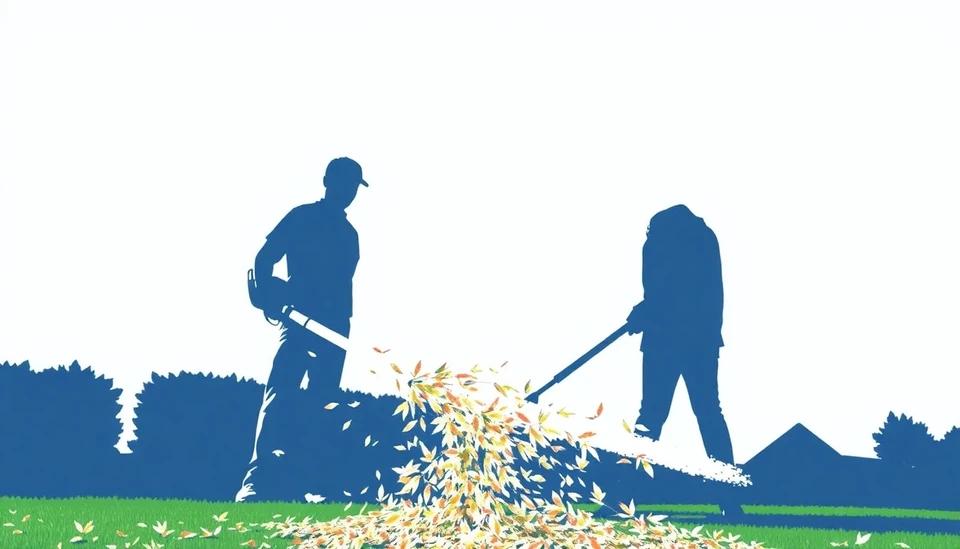
In recent months, cities across the United States have been implementing bans on gas-powered leaf blowers to address environmental concerns, particularly related to noise pollution and greenhouse gas emissions. However, these regulations have ignited a conflict with landscaping professionals who argue that such bans are adversely affecting their businesses and livelihoods.
One of the first cities to enforce this significant restriction was Los Angeles, which imposed a ban on gas-powered leaf blowers as early as 2020. Following Los Angeles, several other municipalities have jumped on the bandwagon, aiming to reduce air pollution and improve community tranquility. Yet, this well-meaning initiative has led to unexpected consequences for local landscaping companies that heavily depend on these tools for their operations.
Landscapers contend that the prohibition of leaf blowers not only hampers their efficiency but also forces them to invest in alternative equipment that is often more expensive and less effective. Electric and battery-powered leaf blowers, which are typically quieter and deemed more environmentally friendly, come with their own set of challenges including reduced battery life, longer charging times, and higher costs. These factors can ultimately slow down job completion, leading to potential revenue losses for these service providers.
This predicament has sparked protests and a movement of landscaping professionals urging city officials to reconsider or at least modify the current restrictions. Many are lobbying for exemptions, particularly during peak leaf-falling seasons when the demand for clearing up debris is at its highest. In several instances, landscapers have organized mass gatherings to voice their concerns, showcasing the financial strain these regulations impose on their businesses.
Critics of the leaf blower ban argue that many landscaping jobs depend on the efficiency that gas-powered tools offer, especially in larger residential and commercial spaces. They highlight that the noise associated with leaf blowers is often outweighed by the need for maintaining public spaces, including parks and community areas which require regular upkeep to prevent unsightly messes and potential pest problems.
Furthermore, many cities had not sufficiently engaged with the landscaping community before implementing these bans, leading to feelings of frustration and neglect among local business owners. The landscape industry claims it is being painted as the villain in an environmentally driven narrative that overlooks the practical realities of their day-to-day operations.
As the debate continues, both sides are seeking to find a common ground. Some cities have begun discussions to create a system that allows for limited use of gas-powered leaf blowers during critical periods of demand, while others are working on setting regulations that would allow for a gradual transition period to electric alternatives.
While the environmental benefits of reducing reliance on gas-powered equipment are clear, the voices of landscaping professionals are also important in this dialogue. Striking a balance between maintaining public green spaces, ensuring business viability, and fostering community standards will be vital as this issue progresses through the legislative landscape.
As more cities grapple with these increasingly contentious regulations, it remains to be seen how the landscape industry will evolve in response to both environmental pressures and the needs of its workforce.
#LeafBlowerBan #Landscaping #EnvironmentalConcern #NoisePollution #GreenSpaces #BusinessImpact #Sustainability
Author: Megan Clarke




